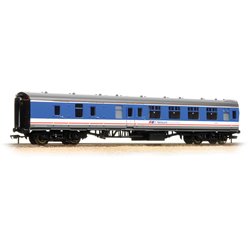Felix Pole was an ambitious employee of the Great Western Railway. Born in 1877, by the age of 27 he was working in...
No products
Product successfully added to your shopping cart
There are 0 items in your cart. There is 1 item in your cart.
Search Tips
In model railways, what is a BSK coach?
The BSK designation is an official British Railways passenger coach type. The BSK code stands for brake second corridor. These coaches were introduced in the early 1950s as part of an effort to modernise carriage stock and provide more comfortable accommodation for second-class passengers.
BSK coaches featured corridors connecting them to other carriages, allowing passengers to move freely throughout the train. They also contained a brake compartment at one end housing brake equipment that could be accessed by the guard. The rest of the coach was given over to open-plan seating bays. Compared to previous carriage designs, BSKs offered increased legroom and a less cramped environment with seat alignments following the corridor rather than being placed transverse.
In keeping with the British Railways standardisation plan, BSK coaches were built to a common design. Standard features included large windows, fluorescent strip lighting, heated ventilation, and later installations included retractable armrests between seats. Liveries varied over the years, ranging from crimson and cream to the final British Rail corporate blue/grey. BSK coaches made up a sizeable portion of BR Mark 1 carriage sets and could be found across the network, serving both suburban and InterCity routes right up until the late 1980s.
Click here to receive the tips weekly in your mailbox. You can unsubscribe at any time.










